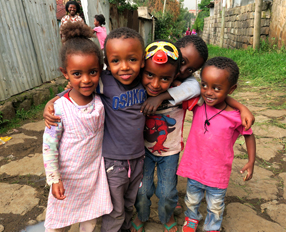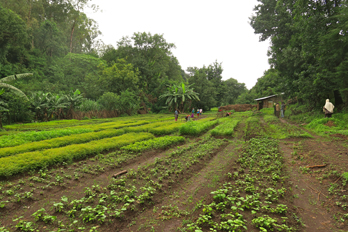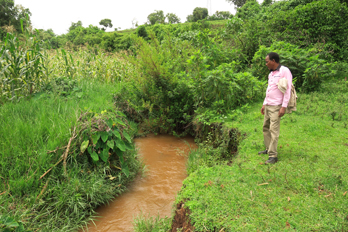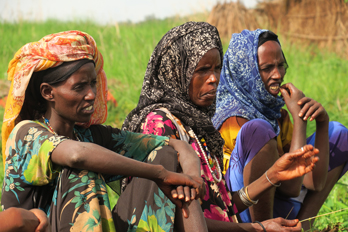FPSC is implementing its project in Ethiopia: “Increased agricultural productivity with environmental and gender focus in East Wellega (Oromiya), Ethiopia”. This project is funded by AECID and it is located at three districts nearby Nekemte population.
From the 21-23 June, FPSC visited the area of activity along with Nekemte population in East Wallega province. There, the status of the project implementation was verified.
The visit started in Sasiga district where a forest nursery has been constructed. It has an annual production of 143.500 plants notably coffee species, Jacaranda, cypress, neem, avocado and gravel among others. With the seedlings produced – being most of them bare-rooted and with a low-percentage in bag- the beneficiaries will carry out reforestation activities. These activities will take place during the rainy season (July-August-September) in waste and eroded lands where agriculture is not possible. The aim of these aforementioned activities is to recuperate these areas, to protect the land from erosion and to obtain products and services of the forest.
Farming areas were also visited where beneficiaries have received improved maize seeds. In contrast to previous plantations, they could observe a greater growth and production.
After the rainy season, a crop diversification is scheduled aiming to introduce other crops and vegetables that require different lighting and temperature conditions. Similarly, the farmers have been provided with chemical fertilizers and have been trained in compost production and organic fertilizers. These training activities have been carried out with the purpose of ensuring the project sustainability and channeling the production towards organic farming. Thus food security in this area will be achieved.
On our way to Diga district, we visited an area where a small masonry dike and a reinforced concrete is scheduled to be constructed. These two constructions intend to store the water. This water is then canalized through irrigation canals located downstream of the dam. So far, 4m3 of stones and sand have been carried in order to construct these infrastructures.
Afterwards, Diga district was visited where improved maize seeds have been planted. Greater growth of these plantations has been observed. In this area, there was a settlement of refugees coming from the border between Somalia and Eritrea and they all thanked the assistance provided. Furthermore a forest nursery which was constructed in this area was also visited. This forest nursery has an annual capacity of approximately 65,000 plants highlighting the presence of two local tree species: the Koshim which is used to create natural fences and the Bisana, appreciated by bees and being a potential vector of pollination for adjacent crops. This forest nursery also produces papaya.
Along with these services areas, it is remarkable the construction of 4 linear kilometers of dikes in order to achieve an hydrological correction of gullies and ravines as well as 33 linear kilometers of terraces destined to stop soil erosion and termite infestation. Similarly, the beneficiaries, including a high percentage of women, have been prepared and trained in diversified farm inputs, animal treatment against Tripanosomiasis, balanced nutrition, service and maintenance of small-scale irrigations, tree plantations, maintenance of forest nursery and control of termites. Also, basic training in finances was developed and three agricultural cooperatives in each district, have been set up with the aim of exporting agricultural surpluses. Hence, the sale of these surpluses to nearby districts through a small market contributes to the improvement of the socio-economic situation of the area.








